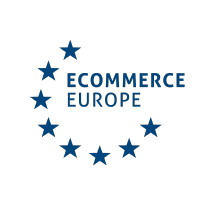Ecommerce Europe’s Position Paper on Single EU VAT Registration

Ecommerce Europe’s Position Paper on Single EU VAT Registration
31 May 2021
Introduction
As the voice of the European digital commerce sector, Ecommerce Europe considers minimising the administrative costs of VAT compliance for businesses a priority. The rise of omnichannel retail and the acceleration of the digital transformation of many businesses as a consequence of the COVID-19 crisis have further stressed the importance of continuing removing Single Market barriers, making it easier and cheaper to do business cross-border in the EU.
The complexity of VAT obligations across the European Union makes it costly, time consuming and burdensome for e-merchants to engage in EU cross-border trade and comply with the different VAT duties. This means that the Single Market cannot be fully exploited yet by many businesses, especially by SMEs, which are the backbone of Europe’s economy.
Ecommerce Europe overall strongly supported the European Commission’s work to modernise, simplify and strengthen the EU VAT system as set out in the VAT E-commerce Package. The VAT One-Stop Shop (OSS), which will become operational as of 1 July 2021, will greatly simplify VAT compliance for businesses, especially the SMEs willing to trade on an EU cross-border basis as it allows businesses to register for VAT, file VAT returns and pay for the VAT due in multiple EU countries, via just one EU country. This is a fundamental and concrete simplification of the overall complex VAT system for businesses.
Limits of the current VAT OSS system
However, the OSS can only be used for sales of goods or services to final consumers (B2C) by those EU businesses that sell cross-border within the EU, not by those that store and fulfil stock locally in several EU states. Achieving shorter delivery times to consumers and reducing shipping costs is paramount for EU businesses. That is why these sellers often need or decide to stock merchandise in multiple EU storing facilities (either owned by the e-merchant or via a third-party warehouse provider), outside their home country, and ship from these remote distribution hubs. Storing inventory in different EU Member States allows to respond to consumer demands for faster delivery, while reducing the logistical and environmental footprint.
In the current system, neither movements of retail inventory across EU countries, nor the onward sale of that inventory, are eligible for the VAT OSS system, resulting in VAT registration requirements in every EU country where goods are stored. This means that, despite the 2021 changes introduced by the VAT E-commerce Package, businesses will still be required to register for VAT in every country in which they store goods (even in situations where sales activities are not undertaken in the storage location). Obtaining multiple VAT registration numbers is proven to be a significant burden for businesses, requiring them to go through lengthy and costly processes in the various Member States, where for each country they need a VAT registration number. These complexities have an adverse and damaging effect on EU cross-border trade.
Solutions to address current VAT OSS limitations
To address these concerns, Ecommerce Europe recommends the extension of the existing VAT OSS to all shipments of merchandise where the seller of record is not located in the EU country of taxation, and in particular to:
1. cross-border movement of own inventory across the EU,
2. domestic sales from distribution hubs by a seller that is not established in that EU country.
In this sense, Ecommerce Europe fully supports the European Commission’s ambition, outlined in its Fair and Simple Taxation Package1, to further reduce VAT-related barriers for cross-border trade in the EU. In particular, the Commission announced a legislative initiative to amend the EU VAT Directive2 and move towards a single EU VAT registration, with which businesses would be able to provide services and/or sell goods anywhere in the EU.
Therefore, Ecommerce Europe calls on the EU Institutions, and in particular the European Commission, to prioritise the Single VAT Registration proposal to be published ideally already in 2022, in any case no later than 2023, in order to complement the VAT OSS and enable businesses selling online to have am unique VAT ID and report all the VAT through the single digital VAT portal.
Potential benefits of a single EU VAT registration
Simplifying VAT registration and extending the VAT OSS system in the way proposed above will have major positive effects for companies selling goods online as this will lower their compliance costs and reduce administrative burdens. Businesses would find it much easier and faster to register and pay VAT throughout the EU, getting better access to intra-EU trade and becoming more competitive in an increasingly globalising and omnichannel retail environment. With online shopping demand growing, this will greatly help SMEs exploit the untapped e-commerce business opportunities in the EU Single Market.
Furthermore, EU Member States’ tax administrations would also benefit from improved VAT compliance and a simple solution to ensure all cross-border goods movements can be easily reported and audited within a single OSS scheme. This is expected to lead to an increase in trade and, consequently, additional VAT revenues and a more competitive market in the EU. Ultimately, also end-consumers will be able to benefit from a larger choice of products and more competitive prices when shopping online.
Final remarks
Ecommerce Europe and its members stand ready to support the European Commission in its preparatory work leading to the publication of a legislative proposal introducing a single EU VAT registration. For any questions on our contribution, please send an e-mail to stefanomauro@ecommerce-europe.eu.
__
1 European Commission’s Fair and Simple Taxation Action Plan, 15 July 2020
2 Council Directive 2006/112/EC of 28 November 2006 on the common system of value added tax
Here you can download the Position Paper (PDF)
About Ecommerce Europe
Ecommerce Europe is the sole voice of the European Digital Commerce sector. As a result of joining forces with EMOTA, Ecommerce Europe now represents, via its 23 national associations, more than 100,000 companies selling goods and services online to consumers in Europe. Ecommerce Europe acts at European level to help legislators create a better framework for online merchants, so that their sales can grow further.
Website: www.ecommerce-europe.eu
Ecommerce Europe
Brussels Office
Rue d’Arlon 69-71
B-1040 Brussels (Belgium)
Tel.: +32 (0) 2 502 31 34
Monday-Friday 9:00 – 18:00 hrs (GMT+1)
Email: info@ecommerce-europe.eu

